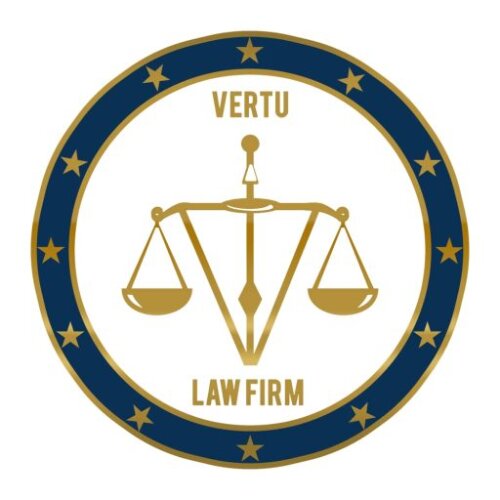Best Corporate Governance Lawyers in Lubumbashi
Share your needs with us, get contacted by law firms.
Free. Takes 2 min.
List of the best lawyers in Lubumbashi, DR Congo
About Corporate Governance Law in Lubumbashi, DR Congo
Corporate Governance in Lubumbashi, Democratic Republic of Congo (DR Congo), refers to the system of rules, practices, and processes by which companies are directed and controlled. This framework seeks to balance the interests of a company’s many stakeholders, such as shareholders, management, customers, suppliers, financiers, government, and the community. Corporate governance laws and practices in Lubumbashi are influenced by national regulations, particularly the Organization for the Harmonization of Business Law in Africa (OHADA) Uniform Act, as well as specific Congolese laws. These laws aim to promote transparency, accountability, and fair treatment within corporate entities.
Why You May Need a Lawyer
There are various circumstances where seeking legal guidance for Corporate Governance in Lubumbashi is essential. Here are some common situations:
- Setting up a new company or subsidiary and ensuring compliance with OHADA and Congolese business laws.
- Drafting or reviewing corporate documents such as articles of association or bylaws.
- Navigating shareholder disputes or conflicts between board members.
- Ensuring compliance with legal obligations, including financial disclosures and audits.
- Handling mergers, acquisitions, or restructuring of corporate entities.
- Meeting requirements set by regulatory authorities or sector-specific agencies.
- Advising on Director or Officer responsibilities and potential liabilities.
- Responding to investigations or audits by governmental agencies.
- Assisting foreign investors or multinational companies with local governance standards.
An experienced corporate lawyer can provide advice tailored to your specific circumstances and help you navigate the often complex regulatory environment in Lubumbashi.
Local Laws Overview
Corporate Governance in Lubumbashi is subject to a mix of regional and national legislation. The most significant legal frameworks include:
- OHADA Uniform Act on Commercial Companies and Economic Interest Groups: This sets out the general rules for company formation, management structure, shareholder rights, board responsibilities, and dissolution procedures across member states, including DR Congo.
- Congolese Law on Commercial Companies: Supplements OHADA provisions with particular rules tailored for Congolese corporate practices.
- Anti-Corruption and Transparency Regulations: Emphasize the importance of ethical business conduct and require internal controls to prevent fraud and corruption.
- Tax and Financial Reporting Requirements: Companies are legally obligated to maintain accurate records and adhere to established guidelines for accounting and disclosure.
Directors and officers face strict responsibilities under these laws, with potential civil or criminal liability for non-compliance. Foreign businesses must also pay attention to local investment regulations and requirements for joint ventures or local partnerships.
Frequently Asked Questions
What is the role of OHADA in Corporate Governance in Lubumbashi?
OHADA (Organization for the Harmonization of Business Law in Africa) sets out uniform business laws, including rules for company structure, management, and shareholder rights. Its provisions are applied directly in Lubumbashi and throughout DR Congo.
What are the basic corporate structures available in Lubumbashi?
The most common types are the Société à Responsabilité Limitée (SARL - Limited Liability Company) and Société Anonyme (SA - Public Limited Company). Each has different governance requirements regarding directors, shareholders, and reporting.
Are there any residency requirements for company directors?
There is no strict residency requirement for company directors under OHADA law, but additional sector-specific regulations or tax considerations may apply.
What rights do minority shareholders have?
Minority shareholders have statutory rights to information, dividends, and participation in corporate decisions. They may also challenge certain board decisions or seek legal redress in cases of abuse.
Is it mandatory to hold annual general meetings?
Yes. Companies must hold regular shareholder meetings, usually annually, to approve financial statements, allocate profits, and appoint or remove directors.
How are disputes between shareholders or directors resolved?
Disputes can often be settled internally or through mediation and arbitration. If unresolved, parties can seek legal redress through the local commercial courts.
What are the main compliance requirements for companies?
Companies must maintain proper records, submit annual financial reports, adhere to tax obligations, and ensure that their governance practices align with both OHADA and Congolese law.
Can foreigners set up and run companies in Lubumbashi?
Yes, but foreign investors must comply with local registration processes, identify a registered office, possibly appoint local representatives, and may face specific sectoral restrictions.
What are the duties and responsibilities of company directors?
Directors must act in the company’s best interest, avoid conflicts of interest, ensure compliance with regulations, and may be held legally responsible for breaches of duty or misconduct.
How does one change the company’s articles of association?
Amending the articles of association typically requires a shareholder resolution passed at a general meeting and proper registration with the relevant business authority.
Additional Resources
If you are interested in learning more or need further assistance, consider the following resources:
- Registry of Companies of Lubumbashi: The official body for business registrations and filings.
- OHADA National Commission for DR Congo: Provides documentation and guidance on applying OHADA law locally.
- Lubumbashi Bar Association: Offers referral services to qualified corporate lawyers in the region.
- Chamber of Commerce and Industry of Lubumbashi: Provides business networking and advisory services.
- Ministry of Justice and Human Rights: Responsible for oversight of legal compliance and corporate regulation.
Next Steps
If you require legal advice or representation for a corporate governance issue in Lubumbashi, here are the recommended steps:
- Identify the specific governance issue or question you need help with.
- Gather relevant documents, such as company incorporation papers, minutes of meetings, or correspondence.
- Contact a qualified corporate lawyer registered with the Lubumbashi Bar Association.
- Consider consulting professional advisors or your local chamber of commerce for further guidance and support.
- Stay informed about changes in legislation and best practices in corporate governance to ensure ongoing compliance.
Addressing legal matters proactively can help your business avoid disputes, regulatory penalties, and reputational harm.
Lawzana helps you find the best lawyers and law firms in Lubumbashi through a curated and pre-screened list of qualified legal professionals. Our platform offers rankings and detailed profiles of attorneys and law firms, allowing you to compare based on practice areas, including Corporate Governance, experience, and client feedback.
Each profile includes a description of the firm's areas of practice, client reviews, team members and partners, year of establishment, spoken languages, office locations, contact information, social media presence, and any published articles or resources. Most firms on our platform speak English and are experienced in both local and international legal matters.
Get a quote from top-rated law firms in Lubumbashi, DR Congo — quickly, securely, and without unnecessary hassle.
Disclaimer:
The information provided on this page is for general informational purposes only and does not constitute legal advice. While we strive to ensure the accuracy and relevance of the content, legal information may change over time, and interpretations of the law can vary. You should always consult with a qualified legal professional for advice specific to your situation.
We disclaim all liability for actions taken or not taken based on the content of this page. If you believe any information is incorrect or outdated, please contact us, and we will review and update it where appropriate.











